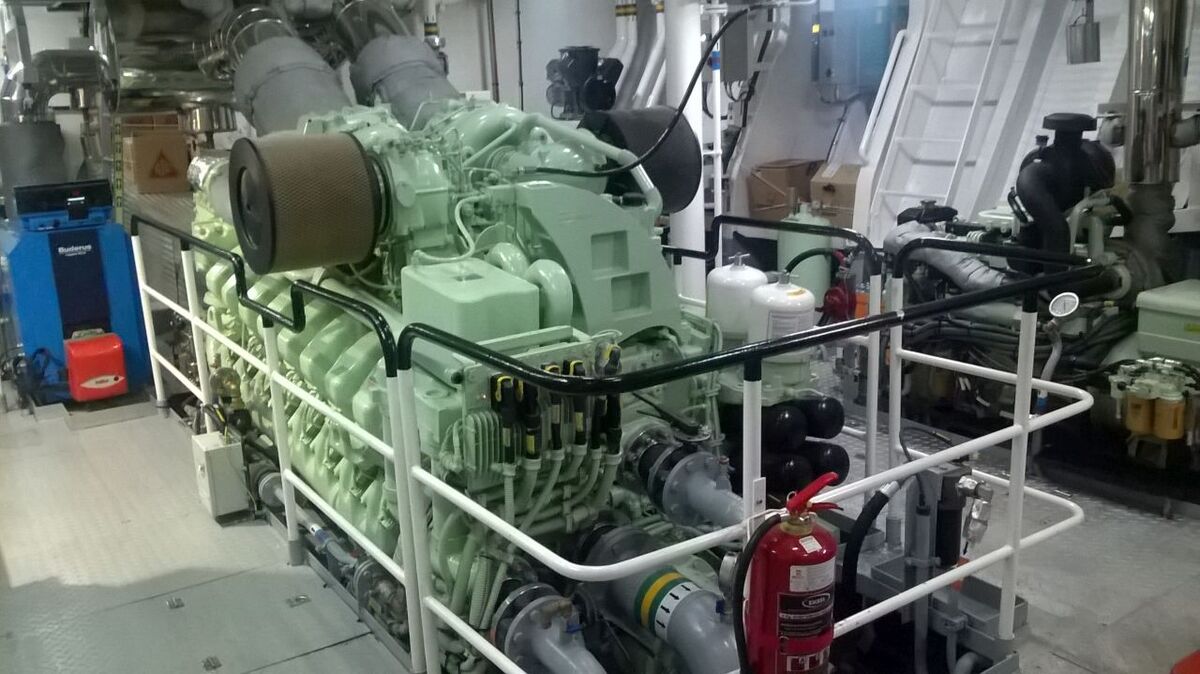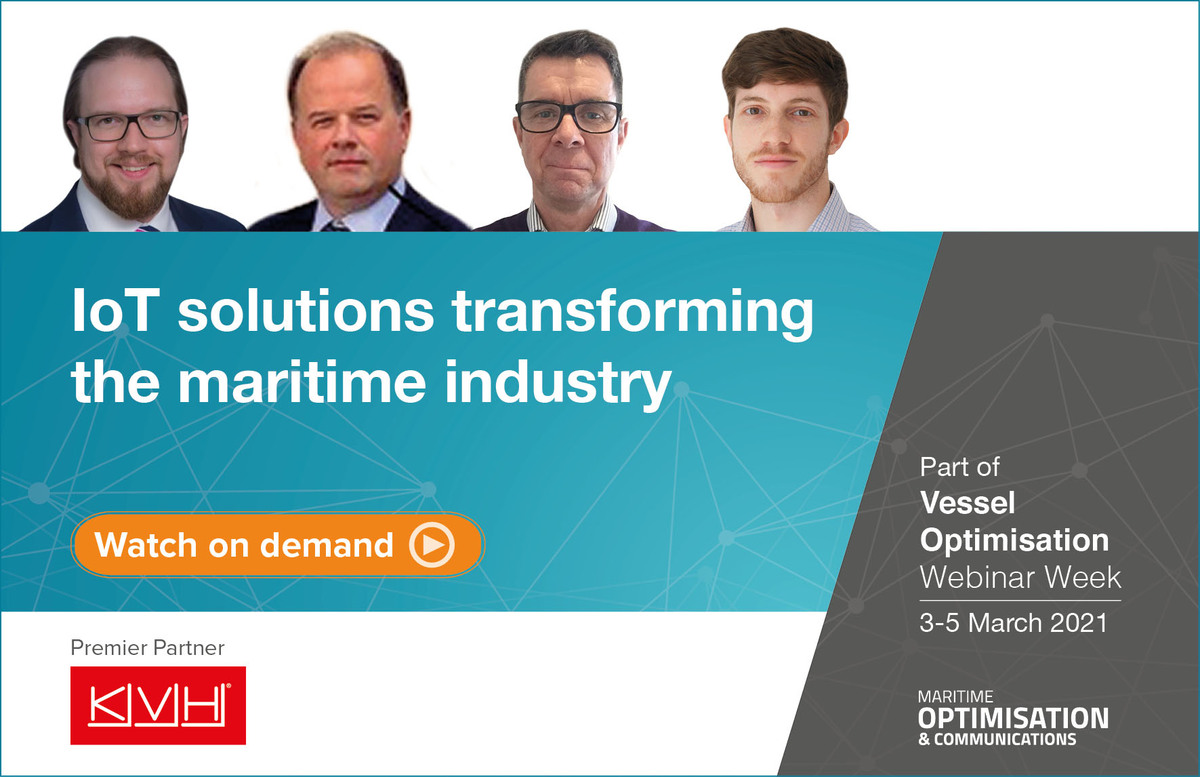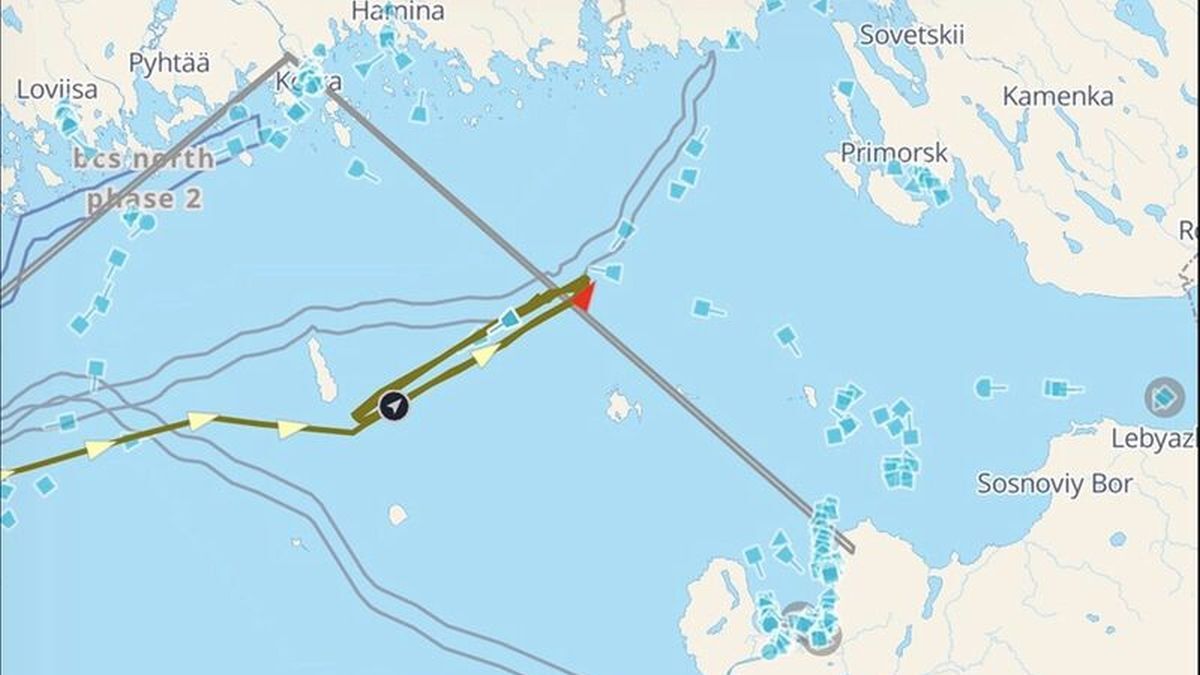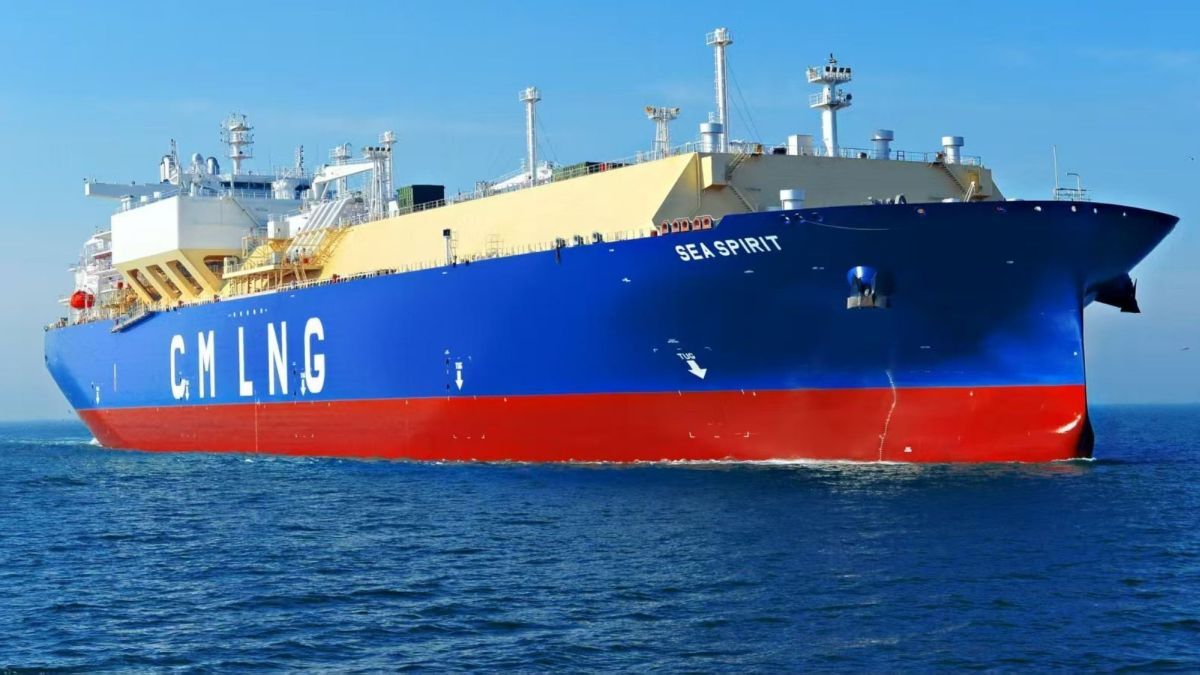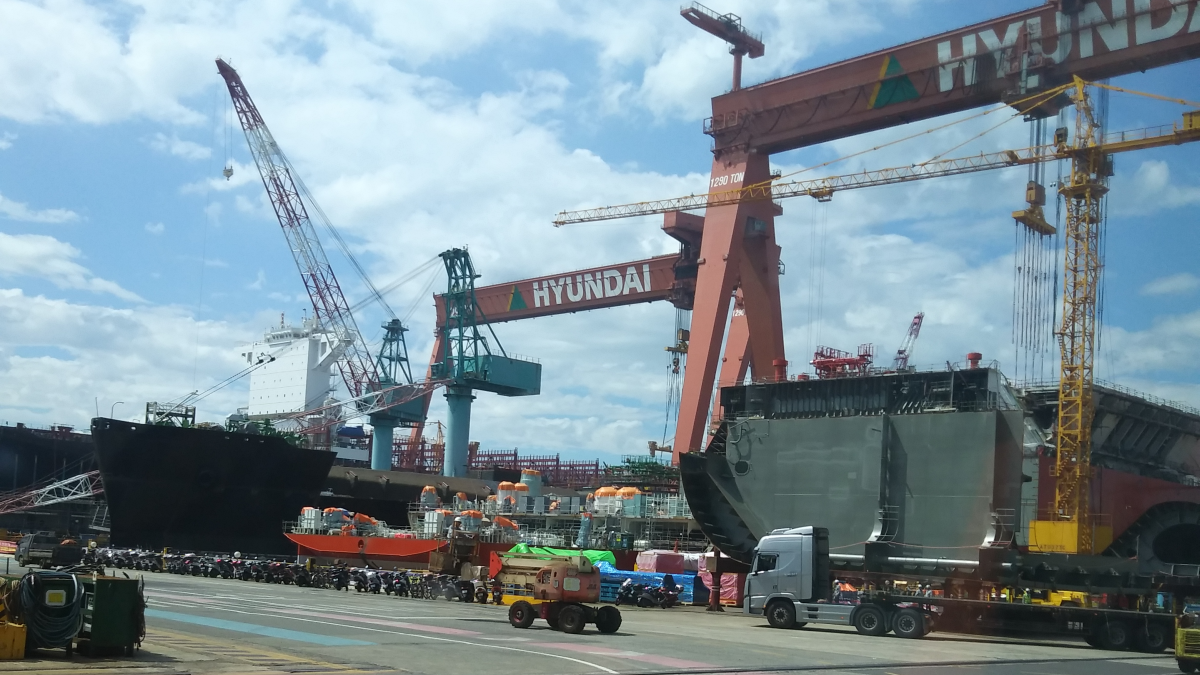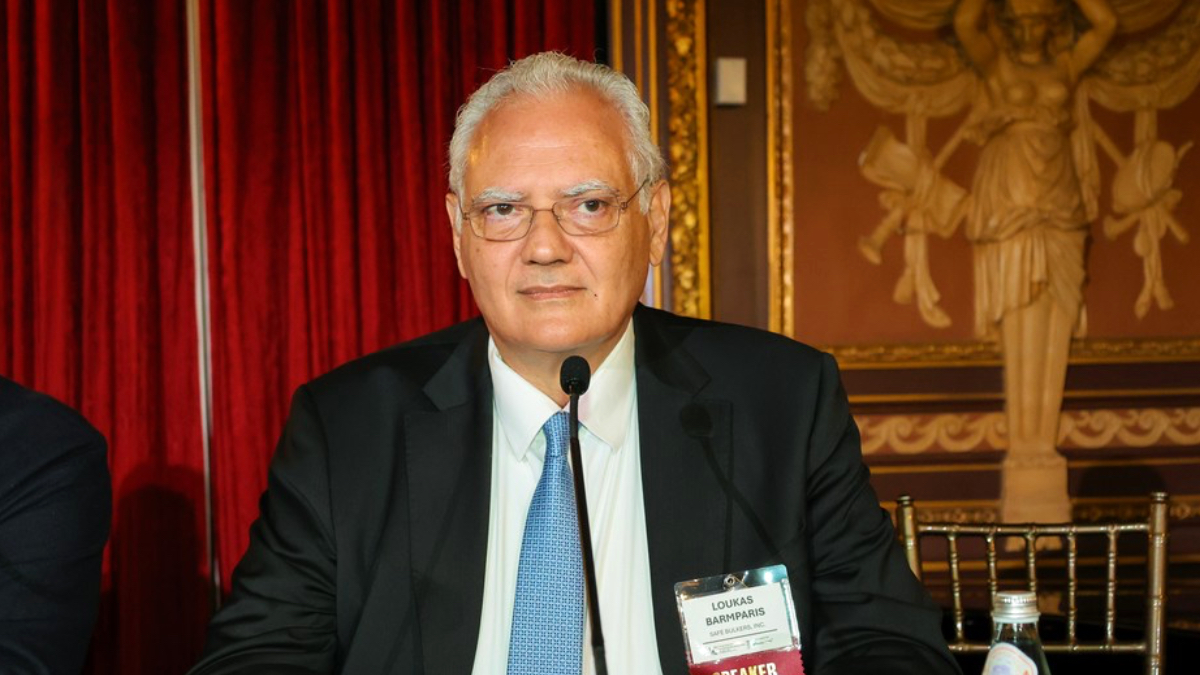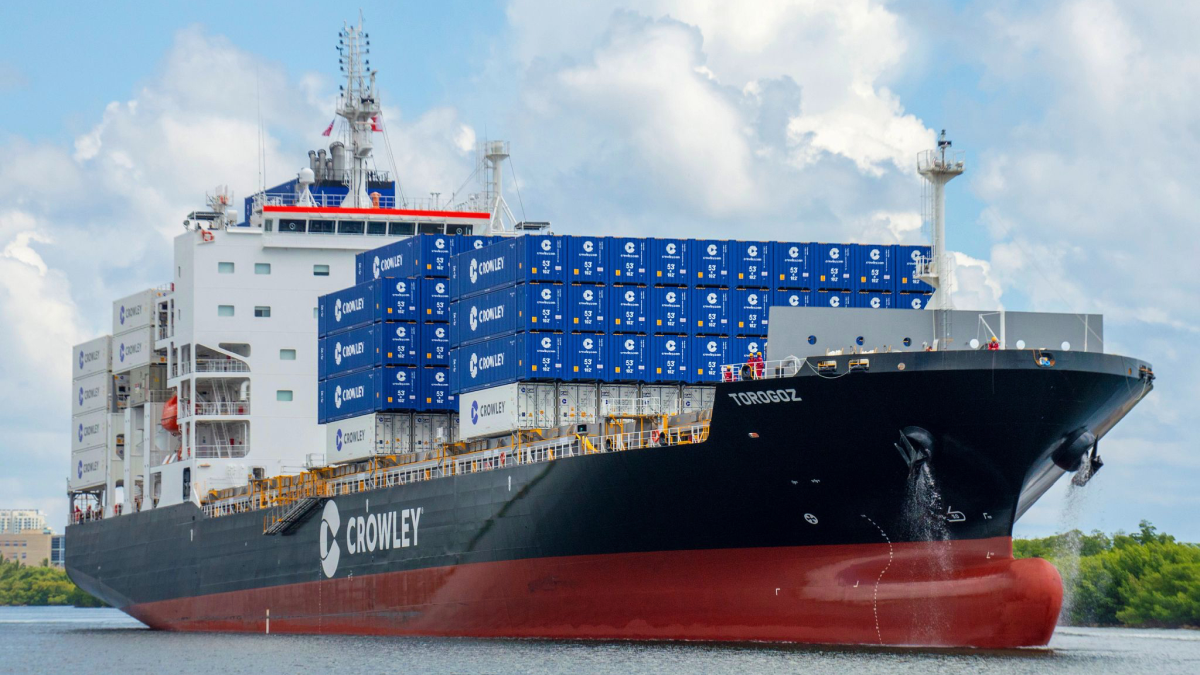Business Sectors
Events
Contents
Covid accelerates maritime IoT adoption
Internet of things is transforming maritime industries, enabling remote monitoring and analytics to reduce costs and emissions
Shipping companies are gaining value from IoT adoption through dedicated and secure satellite communications. But there are concerns over secure connectivity, data quality and reliable remote access.
A panel of technical experts provided some of the answers at Riviera’s IoT solutions transforming the maritime Industry webinar. This event, supported by premier partner KVH Industries, was held on 5 March 2021 as part of Riviera’s Vessel Optimisation Webinar Week.
On the panel were cruise ship operator Carnival Maritime - Costa group IT security and operations director Franco Cerutti, Lloyd’s Register product manager Alexander Steel, GreenSteam chief executive Simon Whitford and KVH Industries senior director of business development Sven-Eric Brooks.
They discussed how the Covid-19 global pandemic has been a catalyst for the wider uptake of IoT throughout the maritime industry. This has led to considerable investment in IoT to transform shipping operations by enabling smart maintenance applications, remote classification and surveying, and vessel optimisation.
Mr Cerutti explained how Carnival group has implemented remote monitoring on its fleet of temporarily laid-up cruise ships to continue maintenance with reduced crews. “We reduced to around 100 people on board ships,” he said, “and we have improved remote access to vendors and technicians from their offices and homes.”
Carnival has improved remote access, procedures, monitoring and controls, and vulnerability patching. “We have tried to get more information and data from the ships,” said Mr Cerutti. “We are looking for tools for privileged access managing and for industrial control system monitoring, detection and security.”
Part of Carnival’s work during the coronavirus-induced prolonged layup of its fleet is to review existing infrastructure and technology on its ships. “We are going back to the future,” said Mr Cerutti. “We are going back to the technology to improve it as much as possible.”
Another side of Carnival’s work during the past year has been improving its partnership with vendors and suppliers and includes looking at risks associated with vendor remote access “to know their level of security” Mr Cerutti. “We have looked at security policies for remote access, to ensure vendor solutions are aligned with our security policies and carried out a review of the remote connections.”
Mr Brooks explained the importance of a dedicated and secure satellite communications service for IoT data transmission, video streaming and remote monitoring and intervention. “We are moving at a good pace to digitalise shipping and are seeing the benefits,” he said. “2020 has seen a rapid acceleration of digital initiatives from all angles of the shipping industry and this trend will continue, either under the umbrella of business continuation or business optimisation.”
IoT is part of this digitalisation transformation for all parts of the maritime ecosystem, including owners, operators, managers, equipment and service providers, shipyards, authorities and classification societies.
“IoT is a real game-changer for the industry,” said Mr Brooks. “It needs dedicated connectivity channels, isolated from crew and ship operations, to capture the benefits.”
This ensures a secure connection and local area network (LAN) isolated from the vessel’s existing IT and operation technology networks.
KVH Watch provides this connectivity through dedicated Ku-band VSAT hardware on ships and its own satellite pipeline. “Data flows only one way, from sensors making it impossible to hack or control the ship from shore,” said Mr Brooks. “Remote interventions must be approved by the ship’s master while intervention users are subject to multi-factor authentication.” Secure logs record the participants and user-entered details about each intervention.
“To simplify things, KVH Watch allows a vessel manager to adequately address the recently introduced cyber security self-assessment by managing the operational technology on a physically separate LAN,” said Mr Brooks.
Mr Whitford said more shipping companies are using this type of connectivity for remote monitoring and data transfers for cloud-based or onshore analytics.
“There is a gold mine of data on vessels,” he said. “There is value to be exploited and insights from the data.” But there is more to come. “We are still just scratching the surface of what is possible,” said Mr Whitford.
Key to capturing this value and benefits from data is ensuring it is of high quality and processed before analytics to remove outliers or erroneous inputs.
GreenSteam has artificial intelligence (AI)-based and data-driven models for vessels. “Our model continuously looks for patterns in the data,” Mr Whitford. “To model the vessel, we need high quantities and high quality of data, and KVH Watch is the key to this.”
Around half of all the data coming into GreenSteam is from noon reports and the rest from telemetry sensors. “Around 50% is high-frequency data, but we expect that to grow through implementing KVH Watch,” said Mr Whitford. “This opens up indepth analysis allowing data to do its work for getting insights on vessel operations and emissions.”
Lloyd’s Register’s Mr Steel said the coronavirus pandemic has accelerated adoption of remote inspection and surveys. “We are at the start of this journey, on a route to a digital-enabled future,” he said. “With more ships with IoT solutions, there will be more opportunities of transformation using data and applications.”
Travel restrictions into and out of ports is driving class societies to offer more remote surveys. In 2020, around one fifth of all ship surveys by Lloyd’s Register were done remotely. “We have seen a 25% increase in remote surveys because of Covid-19,” said Mr Steel. “Now one-third of our surveys are done with some form of remote technologies.”
Webinar attendees were asked several questions during a poll for their views on a range of IoT subjects. More than four-fifths of those who responded (81%) said their company was ready to provide remote access to employees.
Three-quarters (75%) of attendees said their company has procedures or policies in place for vendors, suppliers and partners’ remote access, the other 25% said no.
When asked if their company improved operational technology security more than 50% during 2020, 61% said no and 39% yes.
In another yes/no question, attendees were asked if they increased the number of their suppliers using remote access, of which 77% said yes.
Attendees were asked what the level of security awareness of their critical vendors, suppliers and partners was. 38% said a good level, but 31% said they had concerns, while 21% said security was on the level. 7% said they did not really know and just 3% said it was a high level.
They were then asked what future technology improvement will have the greatest impact on class and compliance. 45% said integration of condition monitoring and other IoT data into survey regimes, 38% thought digital twins with real-time asset status and analytics and 17% said improved live-streaming solutions.
In another question, 48% agreed with this statement: The greatest obstacle to enabling a ship for data streaming and remote technology is poor connectivity. Another 28% strongly agreed, but 10% disagreed and 14% neither agreed nor disagreed.
But none of those who responded disagreed that enabling a ship with IoT and remote technologies is of high importance when considering the design of new ships and refitting of existing ships. 56% strongly agreed with this statement, 37% agreed and 7% did not have an opinion.
Finally, attendees were asked how likely they were to use remote video interventions on board vessels in 2021. 36% said it was highly likely, 28% likely, 16% said they definitely would, but 12% said there was no chance and 8% said possibly.
On Riviera’s IoT solutions transforming the maritime industry webinar panel were (left to right) KVH Industries senior director of business development Sven-Eric Brooks, Carnival Maritime - Costa group IT security and operations director Franco Cerutti, GreenSteam chief executive Simon Whitford and Lloyd’s Register product manager Alexander Steel.
Use this link to view this webinar and others in Riviera’s webinar library
To view details of upcoming Riviera webinars and virtual conferences use this link to the events page
Related to this Story
Events
Offshore Support Journal Conference, Americas 2025
LNG Shipping & Terminals Conference 2025
Vessel Optimisation Webinar Week
© 2024 Riviera Maritime Media Ltd.


